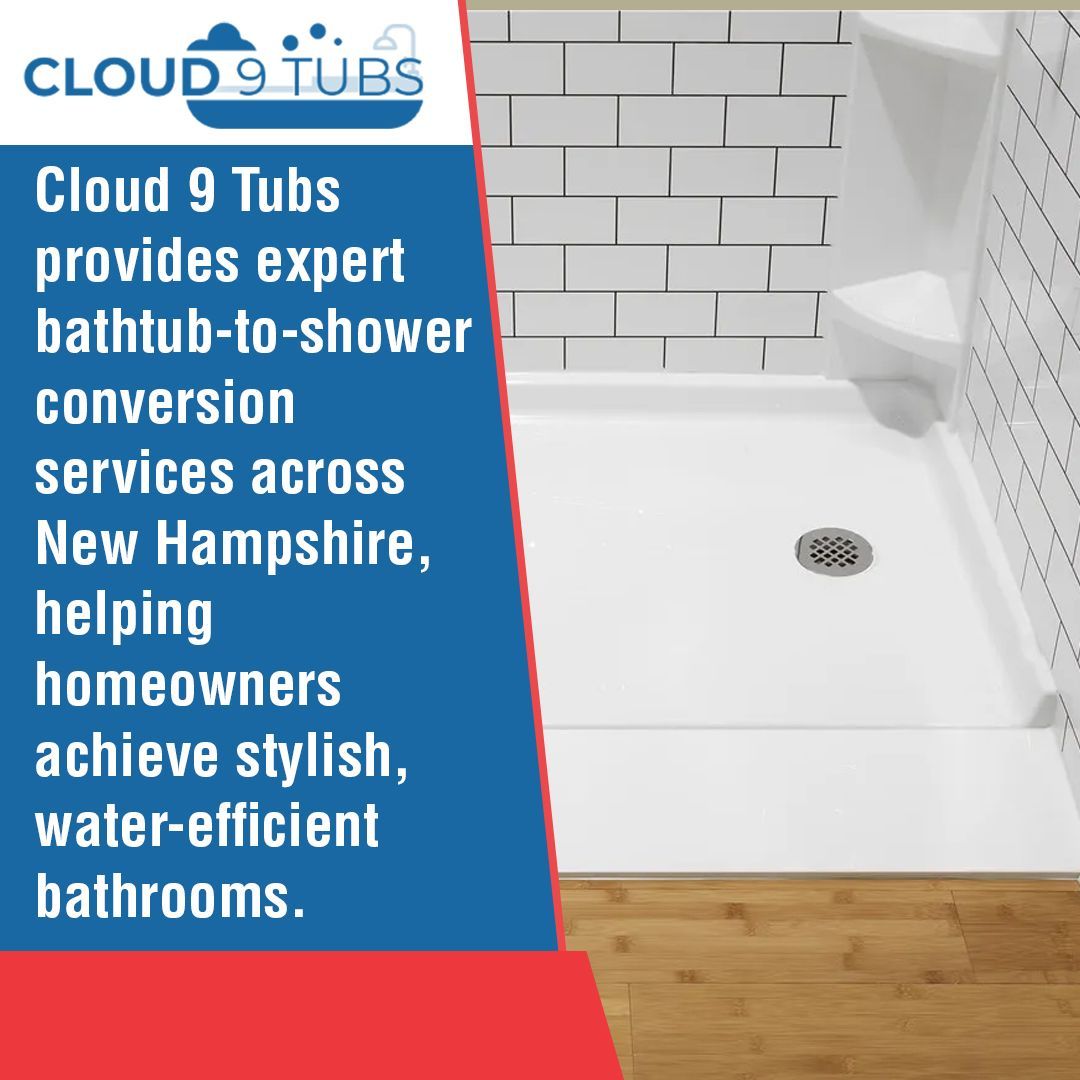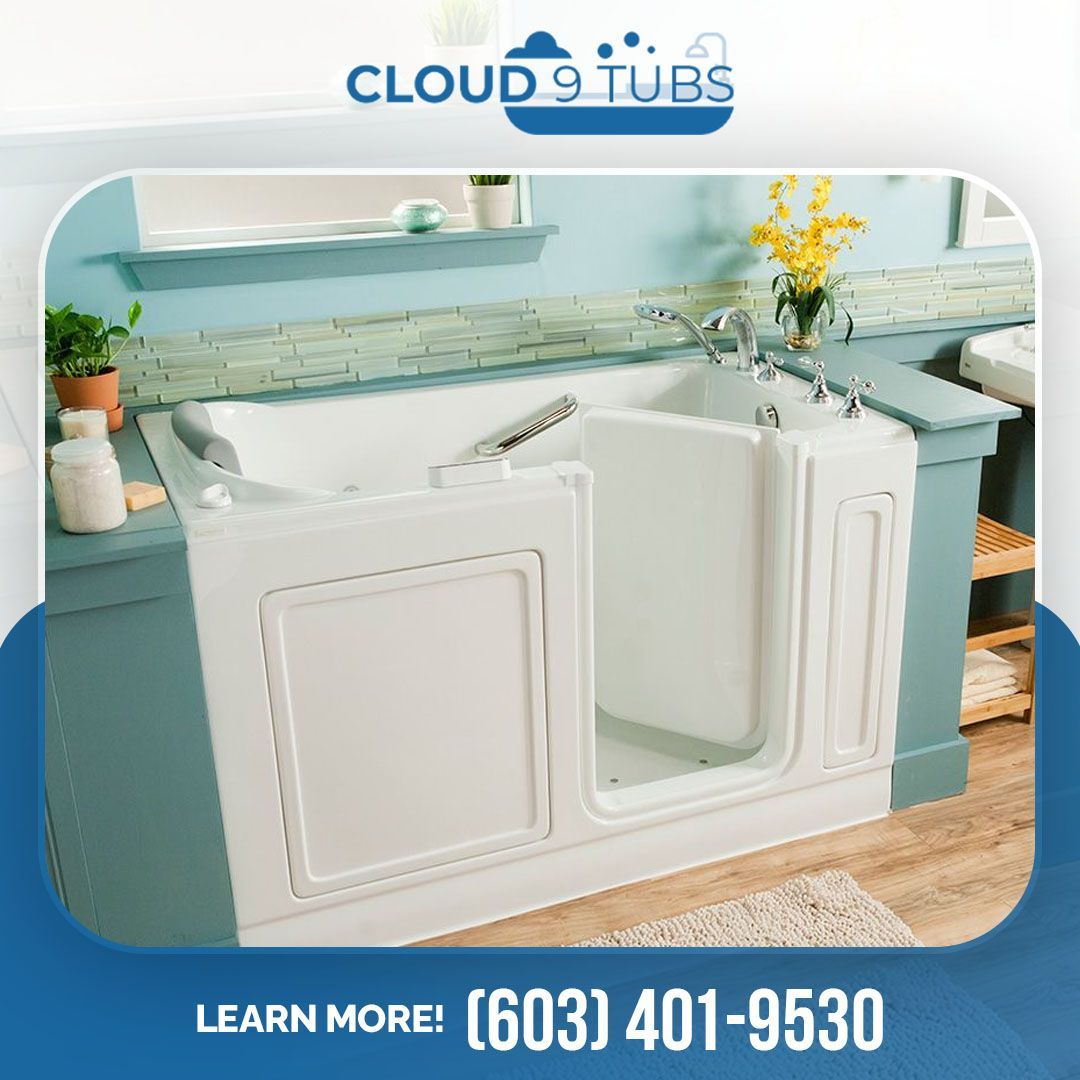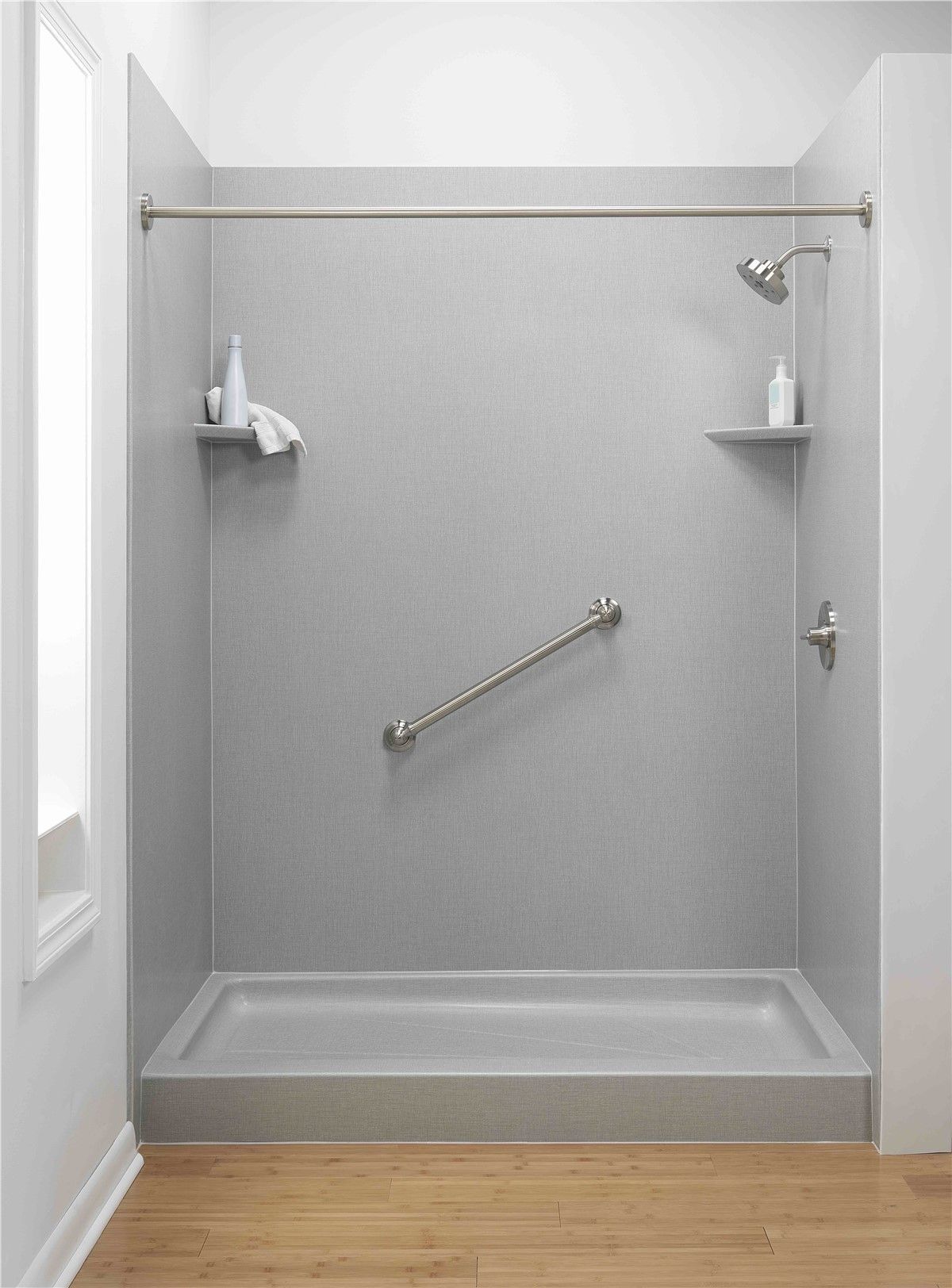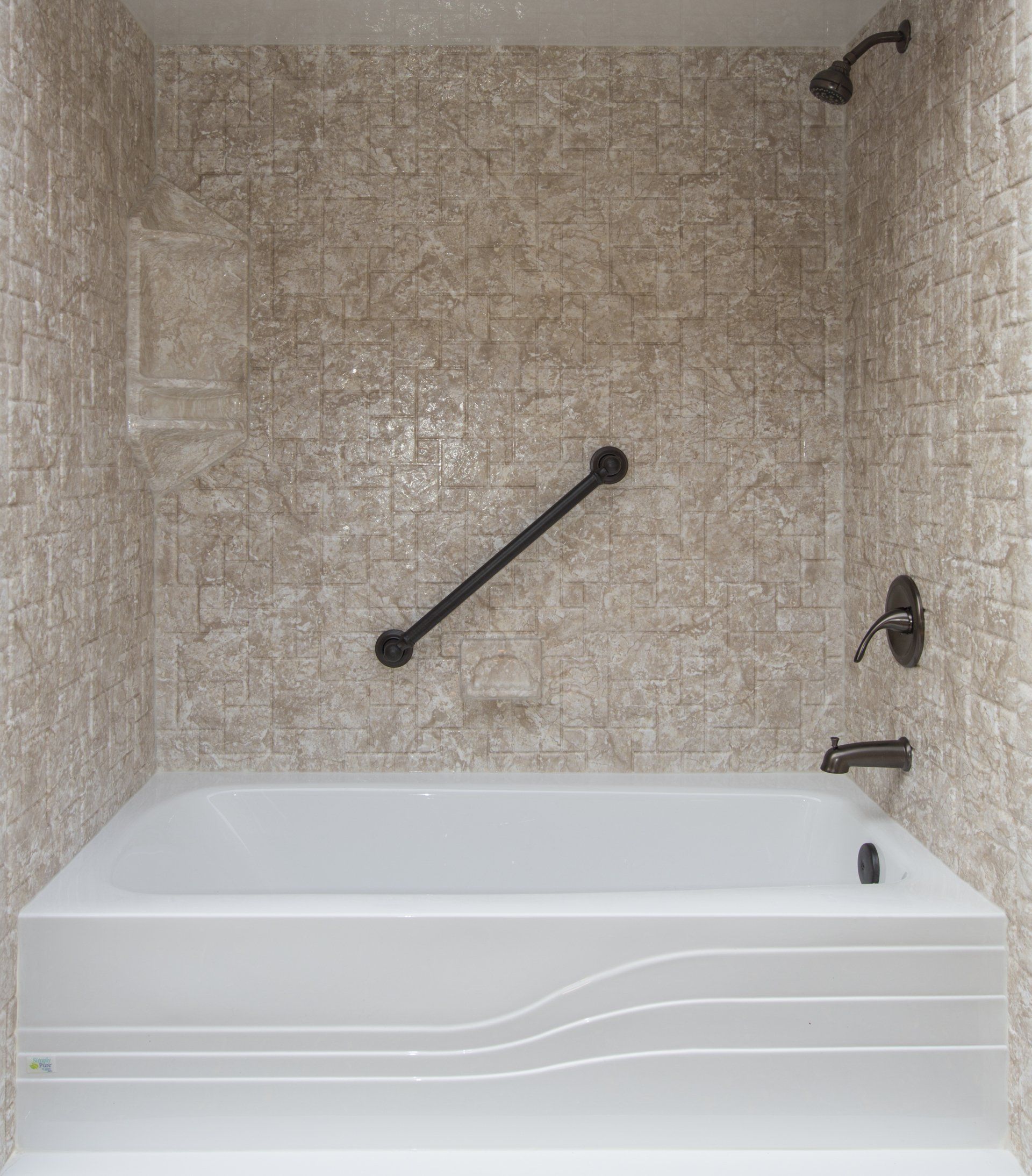Save Water, Lower Bills: The Environmental and Financial Benefits of a Tub-to-Shower Conversion
Switching from a bathtub to a shower can reduce water usage, lower energy consumption, and minimize waste. A standard bathtub requires about 35-50 gallons of water per use, while a shower typically uses less than half that amount. Making the switch can lead to noticeable savings on your water bill and help conserve local water resources. Beyond water savings, a tub-to-shower conversion lowers energy use by reducing the demand for hot water.
At
Cloud 9 Tubs LLC, we help homeowners improve their bathrooms with
tub-to-shower conversions that are practical, stylish, and eco-friendly. We use high-quality materials designed for durability, which means fewer replacements and less waste in landfills. If you’re considering a bathtub-to-shower conversion, this upgrade isn’t just about convenience—it’s a smart choice for the planet and your home.

Rethinking Bathroom Design for a Greener Future
Homeowners are making smarter choices to create more efficient and environmentally friendly spaces. When you convert a bathtub to a shower, it is a practical upgrade that modernizes your home while cutting down on water and energy consumption.
The Impact of Home Renovations on Sustainability
Home renovations directly affect sustainability by influencing water usage, energy efficiency, and material waste. Bathroom remodels are among the most impactful home upgrades, and a tub-to-shower conversion can reduce household water consumption and energy costs considerably.
A traditional bathtub can use thousands of gallons of water annually, while a modern shower system with a water-efficient fixture can cut its usage to half. Reducing the need for excess hot water also lowers energy bills and carbon emissions. Unlike full-scale renovations, this upgrade requires fewer materials and less labor, minimizing construction waste.
At Cloud 9 Tubs, we use durable, low-maintenance materials that provide long-term efficiency. Homeowners who prioritize sustainability can enjoy a modern bathroom that conserves resources while lowering household expenses. Whether you’re looking to save money, reduce waste, or modernize your bathroom, a tub-to-shower conversion is a smart and sustainable choice.
Saving Water with a Tub-to-Shower Conversion
A tub-to-shower conversion helps homeowners use less water while keeping their bathrooms functional and modern. For homeowners in New Hampshire, water conservation is an important part of maintaining local resources. When you convert a bathtub to a shower, water usage is lowered without changing your daily routine.
The Difference in Water Usage
Showers are a good option for homeowners looking to save on utility bills. The average bath requires 35-50 gallons of water, while a 10-minute shower with a water-saving fixture can use as little as 20 gallons.
Upgrading from a bathtub to a walk-in shower reduces water wastage, especially in homes where multiple people share a bathroom. With daily use, the difference in water consumption adds up, lowering household bills and reducing strain on local water supplies. At Cloud 9 Tubs, our tub-to-shower conversions can help you maximize savings on utility bills while enhancing bathroom comfort and accessibility.
The Role of Low-Flow Showerheads in Further Reducing Water Usage
Low-flow showerheads cut water use without sacrificing water pressure or comfort. These fixtures, which have a WaterSense label, limit water flow to less than 2 gallons per minute (GPM), compared to standard showerheads that use 2.5 GPM or more.
For homeowners who want to convert a bathtub into a shower, installing a low-flow showerhead maximizes savings. Newer models are designed to provide strong water pressure while reducing overall consumption. This small upgrade makes a big impact on both household expenses and local water conservation efforts. At Cloud 9 Tubs, we help homeowners choose efficient shower fixtures as part of our tub-to-shower conversion services in New Hampshire.
A Side-by-Side Comparison of Water Consumption: Bathtub vs. Shower
| Feature | Bathtub | Standard Shower | Low-Flow Shower |
|---|---|---|---|
| Average Water Use | 35-50 gallons per bath* | 25 gallons per 10-minute shower* | 20 gallons per 10-minute shower* |
| Efficiency | High water use per bath | Uses less water per session | Maximizes water savings |
| Annual Water Use (Family of 4) | 50,000+ gallons | ~36,500 gallons | ~29,200 gallons |
*The water usage figures provided are estimates based on data from the U.S. Environmental Protection Agency (EPA) and the U.S. Geological Survey (USGS). Actual consumption may vary depending on shower duration, water pressure, and household habits.
Therefore, switching to a shower can save around 20000 gallons of water per year in a family home. This also lowers energy costs since less water needs to be heated.
Supporting Regional Water Conservation Efforts
Reducing household water use helps protect New Hampshire’s lakes, rivers, and groundwater supplies. The state relies on sustainable water management to maintain clean and abundant resources. By switching to a bathtub-to-shower conversion, residents can actively support conservation efforts.
During dry seasons, lower household demand reduces strain on municipal water systems. Every gallon saved helps maintain water levels in reservoirs and prevents supply shortages. Local conservation programs promote efficient plumbing, responsible water use, and eco-friendly home upgrades.
A bathtub-to-shower conversion aligns with these initiatives by cutting down on daily water consumption. Homeowners who switch to showers with water-efficient fixtures contribute to long-term sustainability while lowering their utility bills.
Cutting Down on Energy Use and Utility Costs
A tub-to-shower conversion reduces energy consumption by lowering hot water demand. Since showers use less water than baths, they require less energy to heat, leading to lower utility costs and a more efficient home.
Heating water accounts for nearly
20% of a home’s total energy use, and bathtubs require far more hot water than showers. Households that convert a bathtub to a shower can see noticeable savings on their utility statements, especially in colder months when water heating costs are higher.
Beyond direct cost savings, using less energy eases the demand on municipal power grids and gas supplies. This contributes to broader efficiency improvements, benefiting both homeowners and the community.
For New Hampshire homeowners, making the switch conserves electricity or gas while contributing to a more sustainable future. At Cloud 9 Tubs, we provide bathtub-to-shower conversions that improve energy efficiency without compromising comfort.

Environmental Impact of Lower Energy Consumption
Using less energy for hot water heating means fewer greenhouse gas emissions from power plants and natural gas systems. In homes with electric water heaters, reduced demand translates to lower carbon emissions from energy generation.
For homes using gas-powered water heaters, cutting back on hot water use decreases the amount of natural gas burned, further reducing environmental impact. For homeowners who convert a bathtub to a shower, it is a simple yet effective change that lowers their carbon footprint.
The Role of Smart Bathroom Upgrades in Promoting Sustainable Living
As we have already seen, a tub-to-shower conversion with a low-flow showerhead ensures minimal water waste while maximizing comfort and functionality. When paired with other energy-saving features like LED lighting and eco-friendly materials, this upgrade helps homeowners create a bathroom that supports both personal savings and environmental responsibility.
At Cloud 9 Tubs, we provide bathtub-to-shower conversions that balance efficiency, comfort, and modern design, helping homeowners make a lasting impact on their energy use and sustainability efforts.
Local Expertise: Cloud 9 Tubs’ Sustainable Tub-to-Shower Conversions in New Hampshire
Cloud 9 Tubs provides efficient, durable, and eco-friendly tub-to-shower conversions across New Hampshire. Our process minimizes waste, reduces water consumption, and delivers high-quality results with a fast installation time.
Designed for Efficiency and Durability
Our bathtub-to-shower conversions are built for long-term performance with minimal upkeep. At Cloud 9 Tubs, we use high-quality acrylic, a durable, non-porous material that resists mold, mildew, and wear. This ensures a long-lasting shower without frequent maintenance or costly repairs. Our water-efficient shower designs incorporate:
Low-flow showerheads that reduce water consumption while maintaining strong water pressure.
Durable acrylic wall panels that are non-porous, easy to clean, and resistant to cracks or stains.
Seamless installation that minimizes leaks and prevents water damage over time.
These upgrades help homeowners lower water bills, reduce chemical use, and support New Hampshire’s sustainability efforts.
Fast, Hassle-Free Installation with Minimal Environmental Impact
Cloud 9 Tubs completes most tub-to-shower conversions in just one day, reducing renovation waste. Unlike traditional bathroom remodels that take weeks and generate excess debris, our process is efficient.
Pre-manufactured materials reduce the need for on-site cutting and waste production.
No major demolition is required, limiting dust and disruption.
Quick installations mean less energy use from power tools and construction equipment.
Homeowners get a brand-new, modern shower with less mess, lower costs, and a smaller environmental footprint.
Serving Homeowners Across New Hampshire
Cloud 9 Tubs specializes in professional tub-to-shower conversions throughout New Hampshire. We help homeowners enhance their bathrooms while improving water efficiency and accessibility. Our customer-focused approach includes:
Clear, upfront pricing with no hidden fees.
A dedicated team of experts ensuring a smooth, stress-free experience.
Customizable designs to match any home’s style and sustainability goals.
Whether you’re looking to convert a bathtub to a shower for easier access, water savings, or a fresh look, Cloud 9 Tubs delivers quality craftsmanship with an eco-friendly approach.
The Long-Term Environmental and Financial Benefits
A tub-to-shower conversion offers lasting benefits, from lower maintenance costs to a reduced environmental impact. By upgrading to a modern shower, homeowners can cut back on harsh cleaning chemicals, improve home efficiency, and increase property value.
Reduced Chemical Use and Lower Maintenance Requirements
A sleek, modern shower requires fewer cleaning products, reducing chemical waste and environmental impact. Traditional bathtubs often develop stains, soap scum, and mildew buildup, requiring frequent scrubbing with strong cleaners. Showers with non-porous, mold-resistant surfaces are easier to maintain, minimizing the need for chemical disinfectants. The seamless design of shower systems also reduces grime buildup, making cleaning quick and hassle-free. With fewer areas for water to collect, showers also reduce the risk of leaks and water damage, eliminating the need for chemical-heavy repairs.
Increased Home Efficiency and Property Value
A bathtub-to-shower conversion makes a home more appealing to buyers. The upgrade not only enhances the functionality of a bathroom but also contributes to lower utility costs by reducing water and energy consumption. As more homeowners prioritize water efficiency and low-maintenance designs, modern showers have become a key selling point.
Beyond efficiency, a shower conversion can also improve home value. Many buyers view a sleek, updated bathroom as a major advantage, and aligning with sustainability goals makes it more desirable. The accessibility benefits of a walk-in shower add even more appeal, offering a long-term solution for homeowners of all ages. By choosing a bathtub-to-shower conversion, homeowners invest in both environmental sustainability and long-term financial gains.
A Smarter, More Sustainable Bathroom Upgrade
Converting a bathtub to a shower is a practical way to reduce water and energy use while creating a modern, low-maintenance bathroom. This simple upgrade not only benefits the environment but also lowers utility costs and enhances home value.
At Cloud 9 Tubs, we specialize in high-quality, efficient tub-to-shower conversions designed to support sustainable living. Our expertly crafted installations help New Hampshire homeowners conserve resources, improve accessibility, and enjoy a hassle-free upgrade.
By choosing a shower over a traditional bathtub, you’re making a smart investment in both your home and the planet. Contact Cloud 9 Tubs to learn more about our eco-friendly bathroom solutions.
Make the switch to a more efficient, eco-friendly bathroom with a professional tub-to-shower conversion from Cloud 9 Tubs. Our expert team is ready to help you reduce water waste, lower energy costs, and enhance the comfort of your home.
Contact us today for a
free consultation at
(603) 401-9530, or email us at
info@cloud9tubs.com. Transform your bathroom with a fast, hassle-free installation designed for long-term sustainability.
Blog






